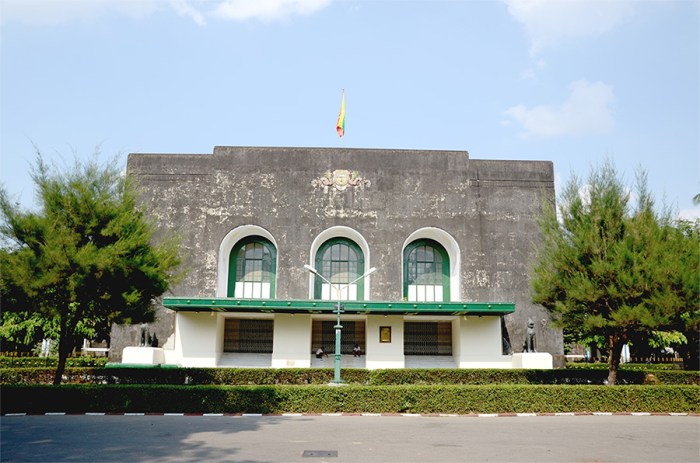University of Yangon
- Established in 1920, the University of Yangon is the oldest and most prestigious university in Myanmar.
- Ranked among the top universities in Southeast Asia, it offers a wide range of undergraduate and graduate programs across various disciplines, including medicine, law, engineering, and social sciences.
- The university is known for its strong research output and has established partnerships with renowned international institutions.
Mandalay University
- Located in the cultural capital of Myanmar, Mandalay University was founded in 1925.
- It is renowned for its programs in history, archaeology, and Buddhist studies, attracting students from across the country and the region.
- The university maintains a strong focus on cultural preservation and has played a significant role in promoting Myanmar’s heritage.
Yangon University of Economics
- Established in 1953, Yangon University of Economics is the leading institution for economic studies in Myanmar.
- It offers undergraduate and graduate programs in economics, finance, accounting, and related fields.
- The university is known for its strong ties to the business community and has produced many influential economists and business leaders in the country.
Research and Innovation at Myanmar Universities

Myanmar universities are actively engaged in research and innovation, contributing to the advancement of knowledge and addressing societal challenges. They collaborate with international institutions, fostering cross-cultural exchange and sharing of expertise. University research has a significant impact on Myanmar’s economic and social development.
Research Activities and Collaborations
Myanmar universities conduct research in various fields, including agriculture, engineering, medicine, and social sciences. They have established research centers and laboratories equipped with modern facilities. Notable research projects include developing drought-resistant crops, improving healthcare delivery in rural areas, and exploring sustainable energy solutions. Universities collaborate with international institutions, such as the University of Oxford and the Massachusetts Institute of Technology, to enhance research capacity and share knowledge.
Impact on Society
University research has a tangible impact on Myanmar society. Agricultural research has led to increased crop yields, improving food security. Medical research has contributed to the development of new treatments for diseases prevalent in Myanmar. Social science research has provided insights into poverty, education, and gender equality, informing policy decisions. University research also fosters innovation and entrepreneurship, creating new businesses and job opportunities.
International Collaboration and Exchange Programs
Myanmar universities actively engage in international collaboration and exchange programs to enhance their academic offerings and foster global connections. These initiatives provide students and faculty with opportunities to broaden their perspectives, develop cross-cultural understanding, and contribute to the advancement of knowledge.
Partnerships with Foreign Institutions, Myanmar university
Myanmar universities have established partnerships with prestigious institutions worldwide, including universities in the United States, the United Kingdom, Australia, and Southeast Asia. These partnerships facilitate student and faculty exchanges, joint research projects, and the development of collaborative academic programs.
Student Mobility Programs
Myanmar universities offer a range of student mobility programs, enabling students to study abroad for a semester or year. These programs provide students with exposure to different educational systems, cultural experiences, and opportunities to build international networks.
Opportunities for Joint Research and Development
Myanmar universities collaborate with foreign institutions on joint research and development projects. These collaborations leverage the expertise and resources of both partners to address global challenges and contribute to scientific advancement. International collaboration and exchange programs play a crucial role in enhancing the quality of education in Myanmar, promoting cross-cultural understanding, and fostering global research and innovation.
Future Prospects and Challenges

Myanmar’s university system has made significant progress in recent years, but it still faces a number of challenges. These include:
- Improving the quality of teaching and research
- Increasing access to higher education
- Making universities more relevant to the needs of the country’s workforce and economy
The government is aware of these challenges and is working to address them. In 2016, it launched a Higher Education Reform Plan, which aims to improve the quality of higher education and make it more accessible to all. The plan includes a number of initiatives, such as:
- Increasing funding for universities
- Improving teacher training
- Developing new curricula
- Expanding access to online learning
The Higher Education Reform Plan is a major step forward for Myanmar’s university system. However, it will take time to implement and its success will depend on the continued commitment of the government and all stakeholders in the higher education sector.





